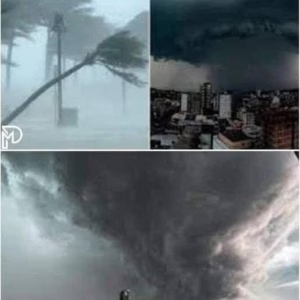The U.S. Senate voted overwhelmingly to pass a key piece of legislation to bolster the country’s nuclear energy sector.
7 Shocking Presidential Health Cover-Ups
Presidential Health Secrets
More common than you think
Throughout history, presidents have concealed serious health conditions from the American public. Recent events have brought this issue back into focus.
The bill passed by a vote of 88-2 with Sens. Ed Markey (D-Mass.) and Bernie Sanders (I-Vt.) opposing the measure. The nuclear package was combined with another bill that reauthorized the U.S. Fire Administration and grant programs for firefighters. This combined package will also go to the president’s desk.
“We benefit from more tools in the toolbox as we take on the climate crisis—with the urgency the moment demands,” Zaidi added.
The measure aims to speed up the process of approving the construction of new nuclear plants as many of the country’s existing plants reach the end of their serviceable lives. In addition, it cuts the licensing fees that power companies must pay to begin projects. It also mandates the Nuclear Regulatory Commission to prepare a report examining ways to simplify and expedite the environmental review process.
“Hopefully it will be history-making in terms of small modular reactors, which is the future of nuclear,” Sen. Shelley Moore Capito (R-W.Va.) told reporters Tuesday before senators voted.
Supporters of the measure say it’s a tremendous boost for the nation’s nuclear power sector.
“It’s a facilitator of the process by which industry has to get approvals for building these projects,” Lesley Jantarasami, managing director of the Bipartisan Policy Center’s energy program, told The Hill.
The measure is not without critics, however.
Edwin Lyman, the director of nuclear power safety at the Union of Concerned Scientists, believes that a provision altering the mission of the Nuclear Regulatory Commission to prevent it from “unnecessarily” restricting nuclear power will make the nation’s power station fleet less safe.
“I just see this as inviting the industry to challenge every decision that the commission tries to make that has the potential to impose more than this minimum amount of regulation and could essentially paralyze it from actually working to improve nuclear safety and security,” he told The Hill.
The vast majority of House members also advanced the bipartisan nuclear-fire bill, in a 393-13-1 vote, with Rep. Rashida Tlaib, a far-left Michigan Democrat, voting “present” to show support for the fire provision but opposition to the nuclear portion.
“I voted present in objection to the ridiculous decision to tie the reauthorization of vital firefighting programs for our communities together with poison pills that undermine nuclear safety and were strongly opposed by leading grassroots environmental organizations,” she told The Hill.
Advocates for nuclear power, which currently generates about 20 percent of the country’s daily needs, have long argued that it should satisfy both sides of the aisle – those who want to increase American power generation and security and those concerned about emissions since nuke plants only produce steam and not pollutants.
And while there are concerns about properly storing nuclear waste from plants, the U.S. has never had any accidents regarding the spillage of spent nuclear fuel.
“As of August 1, 2023, 93 nuclear reactors were operating at 54 nuclear power plants in 28 states. Of the 54 operating nuclear power plants, 19 have one reactor, 31 have two reactors, and 4 have three reactors. The U.S. nuclear energy industry has supplied about 20% of total annual U.S. electricity since 1990,” the U.S. Energy Information Administration said on its website.
“In 2021, 33 countries had commercial nuclear power plants, and in 15 of those countries, nuclear energy supplied at least 20% of their total annual electricity generation. The United States had the most nuclear electricity generation capacity and generated more nuclear electricity than any other country. France had the second-largest nuclear electricity generation capacity and third-highest nuclear electricity generation. In addition, France had the world’s highest nuclear share—about 68%—of total national annual electricity generation,” it added.




